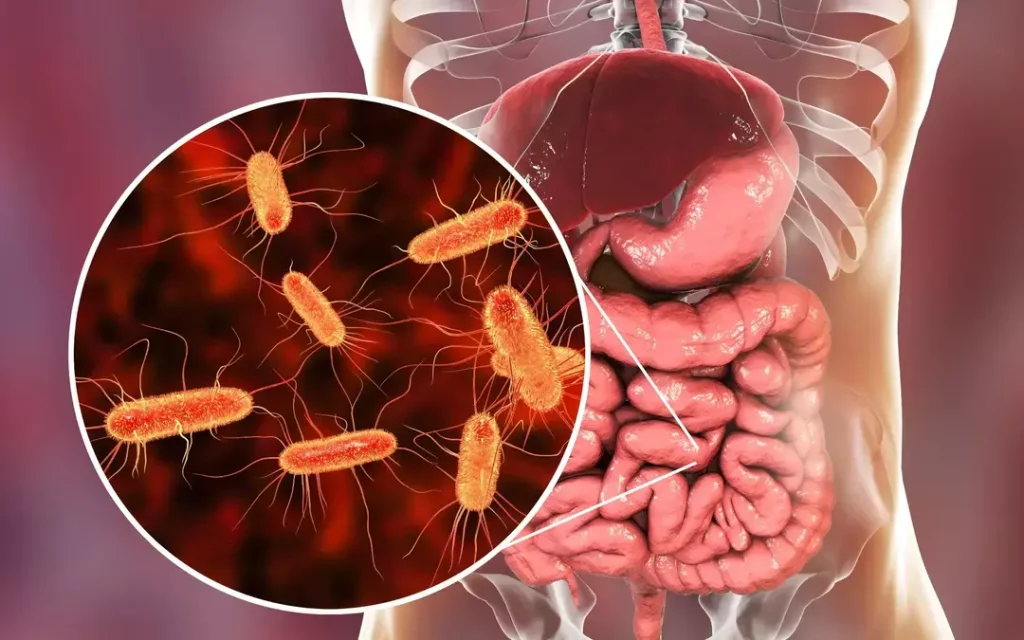
Can Gut Bacteria Make You Feel Hungry?
When it comes to hunger and satiety, our brains play a crucial role in sending and receiving signals to our stomachs. However, did you know that tiny microorganisms in your gut, known as gut bacteria, can also influence our appetite and eating habits? In this blog post, we’ll explore the fascinating connection between gut bacteria and hunger, and how a healthy gut microbiome can help regulate our appetite and support sustainable eating habits.
The Gut-Brain Axis
The gut and brain are connected through a complex network of neurons and hormones, known as the gut-brain axis. This bidirectional communication system allows the gut to send signals to the brain, influencing mood, behavior, and appetite. In recent years, research has shed light on the crucial role of gut bacteria in this communication process.
Some gut bacteria produce hormones and neurotransmitters that can affect the brain’s appetite centers, influencing our hunger and fullness cues. For example, the hormone ghrelin, produced by certain gut bacteria, stimulates appetite and increases food intake. On the other hand, the hormone leptin, also produced by the gut microbiome, suppresses appetite and promotes feelings of fullness.
Gut Bacteria and Hunger
Studies have shown that certain gut bacteria can affect our hunger levels and eating habits in several ways:
- Increased hunger: Some gut bacteria, such as those belonging to the genus Bacteroides, can produce hormones that increase hunger and food intake.
- Decreased fullness: Other gut bacteria, like those in the genus Clostridium, can produce hormones that reduce feelings of fullness and satisfaction.
- Mood and stress: The gut microbiome can also influence our mood and stress levels, which can, in turn, affect our appetite and eating habits.
The Importance of Fiber
So, how can we cultivate a healthy gut microbiome that supports our appetite and eating habits? One crucial step is to increase our fiber intake from whole, unprocessed foods like fruits, vegetables, and whole grains.
Fiber serves as a prebiotic, feeding the good bacteria in our gut and promoting their growth and diversity. A high-fiber diet has been shown to:
- Increase the production of beneficial gut bacteria
- Improve the balance of the gut microbiome
- Enhance the production of satiety hormones, like leptin
- Reduce inflammation and oxidative stress
Incorporating more fiber-rich foods into your diet can have a significant impact on your hunger and fullness cues. For example, a study published in the Journal of Nutrition found that a high-fiber diet increased feelings of fullness and reduced hunger in overweight and obese individuals.
Other Ways to Support Gut Health
While fiber is a crucial component of a healthy gut microbiome, there are other ways to support your gut health and appetite regulation:
- Probiotics: Probiotic supplements or fermented foods like yogurt, kefir, and sauerkraut can introduce beneficial bacteria into your gut.
- Omega-3 fatty acids: These healthy fats, found in fatty fish, flaxseeds, and chia seeds, can reduce inflammation and support gut health.
- Exercise: Regular physical activity can improve gut health and reduce stress, both of which can influence appetite and eating habits.
- Adequate sleep: Getting sufficient sleep is essential for gut health and can help regulate appetite and metabolism.
Conclusion
The connection between gut bacteria and hunger is a complex one, and further research is needed to fully understand the mechanisms involved. However, the available evidence suggests that a healthy gut microbiome can play a significant role in regulating our appetite and eating habits.
By incorporating more fiber-rich foods into your diet, you can support the growth of beneficial gut bacteria and improve your appetite regulation. Additionally, targeting other factors that influence gut health, such as stress, sleep, and exercise, can also have a positive impact on your hunger and fullness cues.
Remember, a healthy gut microbiome is just one piece of the puzzle when it comes to maintaining a balanced diet and healthy eating habits. By combining this knowledge with mindful eating practices and a balanced diet, you can take control of your appetite and support your overall health and well-being.
Source:
https://thepfc.club/blogs/news/why-we-eat-and-what-drives-our-cravings






